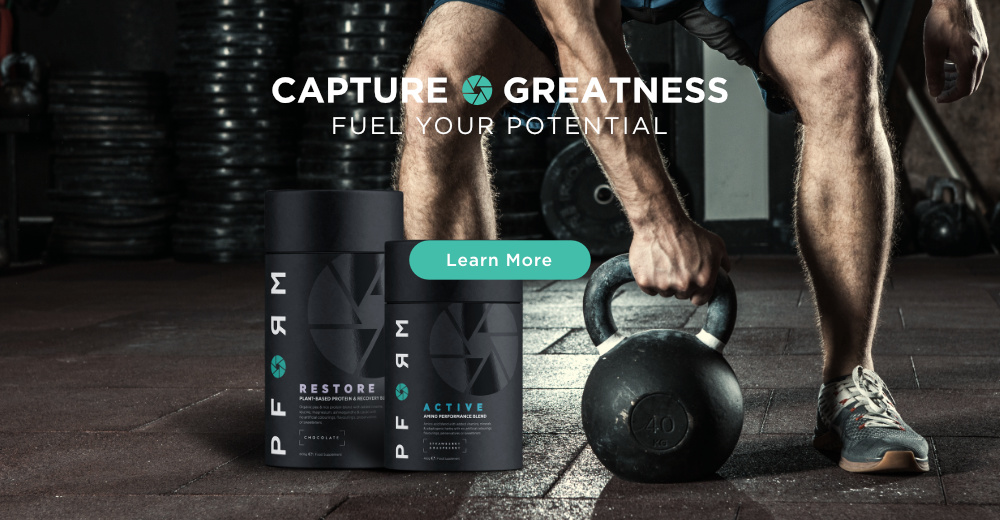
Nutrition to speed up injury recovery
Want to recover faster? Nutrition can play a pivotal role in speeding up the healing process.
When I fractured my leg and ruptured a couple of ligaments in my knee back in 2014, I was shocked at the complete lack of nutritional guidance people are given to support their recovery.
As I laid in hospital after my operation, making friends with the rest of the patients on the ward who had also been in for their knee operations that day, we began discussing our recovery strategies. I mentioned what I did and discussed with them my thoughts on nutrition and its ability to support injury recovery. For many, if not all of them, I know this is the only nutritional advice they would have got throughout their whole recovery.
It is very interesting that both doctors and physical therapists, tend to have very little regard for the role nutrition can play in the recovery of injuries and the rehabilitation process.
Interestingly, the injury recovery process on a physiological level, is an orderly one and one in which we can influence with nutrition and lifestyle management. Below I am going to take you through different phases of injury and how nutrition may help.
Recovering from injury can be a very challenging time both physically and psychologically. I have been fortunate enough as a nutritionist to help a number of people including myself increase their rate of recovery through nutrition and lifestyle modifications.
I have personally worked with over 50 stunt performers as well as some professional athletes. Unfortunately, injuries can and will happen, the question is: after they happen, how can you help your body heal and can you improve the outcome of the recovery.
Below we will cover some best practices for using nutrition to support the injury recovery process.
Injury recovery process
Stage 1 – Inflammation phase
This is the first stage of healing lasting up to about 5 days. Nutrition at this point plays a limited role, as you want the body to run through its own natural inflammatory response. Trying to use specific nutritional compounds at this point to calm inflammation can actually have a negative effect on the injury outcome, thus a general focus on health nutrition habits is all that is required.
Once the injury occurs blood-clotting forms, inflammation begins, clean-up cells are sent to the wounded area and the process of repair is initiated.
Inflammation however that persists beyond 5 days may have negative consequences on recovery, hence managing chronic inflammation is crucial and this is certainly an area that nutrition and targeted supplementation can help with.
Nutrition for inflammation stage
Although painful and irritating, we need the inflammatory process for repair. Without inflammation, injuries wouldn’t heal. These strategies help produce the right amount.
Eat more anti-inflammatory fats like:
- Olive oil
- Avocados
- Fish like mackerel, salmon, sardines
- Flax oil or ground flax
Eat fewer pro-inflammatory foods that can interfere with healing optimally like:
- Processed foods
- Vegetable oils like corn, sunflower, safflower
- Foods with trans fats. E.g. biscuits, pies, cakes and fried foods
You should also focus on avoiding or limiting:
- Added sugars and concentrated sweets (e.g., soft drinks, ice-cream, etc.)
- Alcohol – it inhibits muscle protein growth/repair and it increases muscle loss
- Less than optimal sleep (7-9 hours/day for most adults)
Include inflammation managing herbs and spices:
- Curcumin from turmeric and ginger
- Garlic: 2-4 cloves a day
- Bromelain from pineapple: The core is particular rich in bromelain.
- Cocoa, tea and berries: Eat daily or supplement with blueberry or grape extracts, green tea extracts, citrus extracts
Anti-inflammatory supplements
Supplements can also be used with the above, some of my favourite anti-inflammatory supplements include:
- Omega 3 fish oil
- Curcumin
- Boswellia
- Serrapeptase
- Bromelain
- Japanese Knotweed – High Resveratrol content
Stage 2 & 3 – the proliferation & remodelling phase
From about day 4-5 this phase lasts for around a few weeks or more. Once the initial inflammation subsides and new blood flow is re-established the body is now able to feed oxygen and nutrients to help the rebuilding process.
Nutrition can play a role in supporting blood flow, nutrients required to support normal and faster regeneration of tissue and can also be used to help control chronic levels of inflammation, and continue the process of removing unwanted debris around the site of injury.
Nutrition for proliferation and remodelling stages
Total energy demands
When we are injured, this increases our energy requirements and a big mistake many people make during their recovery phase, is eating inadequate amounts of calories.
This can cause the body to tap into its reserves or lower metabolic functions which can slow down the recovery process. It is crucial not only to get the total calorie intake optimised but to also optimise the levels of proteins, fats and carbohydrates to suit the recovery and goals of that individual.
Equally, if your injury leads to significant reductions in activity levels, then you may have to be careful not to overeat and therefore looking like an out of season Tyson Fury by the time you have recovered.
Those with multiple injuries may require more calories than normal, those with a single injury may require much less calories than normal.
Adequate protein should be consumed to help support the recovery process and also as a way of trying to prevent muscle tissue loss, however, the inactivity will be the most significant cause of muscle loss, not dietary changes.
Inadequate micronutrient intake
Many people these days have micronutrient insufficiencies. Inadequate levels of any one single nutrient can have a significant effect on the regeneration of new tissue, affecting the rate of recovery. Also, during the recovery phase there will be a higher demand for micronutrients, further increasing the demand on the stored nutrients or what we get from our food.
Your Injury Recovery Meal Plate
- Eat Adequate Protein – Minimally processed meats, legumes, eggs, plant-based proteins, proteins, fish – About a fist size portion.
- Balance Dietary Fat – Focus on the anti-inflammatory fats and avoid the pro-inflammatory fats like the refined and process foods containing vegetable oils
- Eat the Rainbow – Include a diverse mix of fruits and veggies.
- Eat adequate carbohydrates – You’ll need fewer carbs when not training but enough to support recovery; include minimally processed carbs like whole oats, whole grain rice, quinoa, root vegetables, fruits as an example.
Supplements worth considering
Supplementing with the following post-injury may be helpful.
Vitamin A
Assists with cell growth and development, as well as immune function. Examples of foods rich in vitamin A include: sweet potatoes, tomatoes, carrots, papaya (i.e., orange/red fruits and vegetables).
Omega 3’s
Fats are essential for healing, and the type of fat is critical. Omega 3’s (found mainly in fatty fish such as salmon, mackerel or tuna) help to increase muscle protein synthesis (muscle building), as well as play a role with recovery and decreasing inflammation.
Vitamin C
Assists with wound healing, tissue repair and optimal immune function. Foods rich in vitamin C include: citrus fruit, strawberries, red bell peppers, watermelon.
Zinc
Assists with wound healing, muscle building and immune function. Good choices of foods for getting enough zinc include: beef, almonds, seeds (e.g., sunflower, flax, pumpkin, etc.) and seafood.
Vitamin D
Important for bone health and immune function. Vitamin D is the sun vitamin – can be found in dairy products, fatty fish or fortified foods.
Specific supplements may then be added depending on the injury. For example, I will have different considerations for bone, muscle and connective tissue traumas. You can learn more about my approaches to a bone fracture in my article – Bone Fracture Recovery Protocol: Nutrition and Supplement Considerations.

